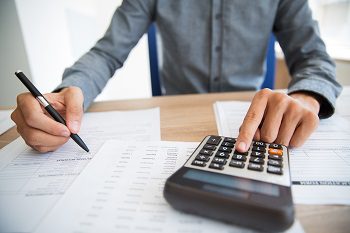Pedro Rezek Andery Altran
Lawyer at Marcos Martins Advogados
The single-phase payment system is one in which industries and/or importers are responsible for paying the PIS and COFINS levied on the entire production chain. The system applies to products such as medicines, cosmetics, auto parts and others.
The rate for the industrialist/importer is high, while for the other companies in the production chain the rate of the contributions is zero.
This system is similar to forward or progressive tax substitution, the difference being that in the single-phase system, the taxpayer is the only one and the tax collected, even if subsequent operations are not consumed, will not be returned.
Non-cumulative, on the other hand, is a form of payment that avoids the cascading effect of taxation, offsetting what is due in each operation against the amount of tax due in the previous operation.
Well then.
Because the PIS and COFINS rates are zero on the resale of products subject to the single-phase system, some courts and the Federal Revenue Service believe that taxpayers would not be entitled to credit for the contributions, due to the principle of non-cumulative taxation, because if there was no debit in the resale operation, there would be no right to credit in the entry operation.
However, the first panel of the Superior Court of Justice ( STJ ) has ruled that crediting is possible. When recently analyzing the merits of an appeal by a distributor of medicines, Justice Regina Helena Costa pointed out a very interesting issue, the difference in the application of the non-cumulative regime in ICMS and contributions:
[…] in relation to the IPI and ICMS, the non-cumulation rule aims to avoid the so-called cascading taxation, that is, the incidence of tax on tax, in the case of multiphase taxes, understood as those payable in successive operations.
It is therefore a system of credits that can be used as a means of paying the tax. The taxpayer must subtract the credit(s) accumulated in the previous transaction(s) from the amount due for these taxes.
On the other hand, for taxes of a different configuration, such as the PIS and COFINS contributions, although the principle of contributory capacity is also applicable to them, as they have the materiality of a tax, non-cumulativeness must be covered by a different system.
In fact, as these are contributions whose calculation basis is gross revenue or billing, and which therefore have no direct connection with a particular transaction involving a product or commodity, the non-cumulativeness technique to be observed is “base on base”, i.e. the amount of the tax is calculated by applying the rate to the difference between the revenues earned and those necessarily consumed by the producing source (necessary expenses).
Therefore, it should be noted that the very nature of the non-cumulative regime, whatever its configuration, is the possibility of recovering tax expenses from previous operations or stages. If this is not possible, non-cumulativity is not met. (emphasis added). (Special Appeal No. 1.861.190 – RS)
Thus, for PIS and COFINS, non-cumulativeness must comply with the “base on base” technique and would therefore have no direct connection with the operation, it being irrelevant whether there was no debt in the previous or subsequent operation. In this case, attention should be paid to the difference between the revenue earned and that consumed by the source of production.
This fact alone would be enough to overturn the IRS’s argument, but that’s not all.
The laws that established the contributions expressly defined the situations in which it is possible to use the credits, and excluded this right when goods or services are acquired that are not subject to payment, including in the case of exemption, when they are resold or used as inputs in products or services subject to a zero rate.
Law 11.033/04, which instituted the Tax Regime to Encourage the Modernization of the Port Structure – REPORTO, revoked these provisions and determined in its article 17 that sales made with suspension, exemption, 0 (zero) rate or non-levy of the Contribution to PIS/PASEP and COFINS do not prevent the seller from keeping the credits linked to these operations.
This provision does not only apply to transactions carried out with beneficiaries of the REPORTO regime, since the legislation did not expressly limit this.
The maintenance of PIS/COFINS credits on purchases of products subject to single-phase taxation is therefore guaranteed, even if the resale is not taxed.
The Second Panel of the STJ, on the other hand, takes the opposite view to taxpayers and, for this reason, the 1st Section of the Court, which includes both panels, is discussing the matter in order to standardize case law. The judgment is currently suspended due to a request for a review by Justice Napoleão Nunes Maia Filho.
Crediting is an excellent opportunity for taxpayers to reduce their tax burden and recover amounts not used in the last five years.
In this context, Marcos Martins Advogados Associados has made its team of lawyers specializing in the tax area available to answer questions about this important discussion.








